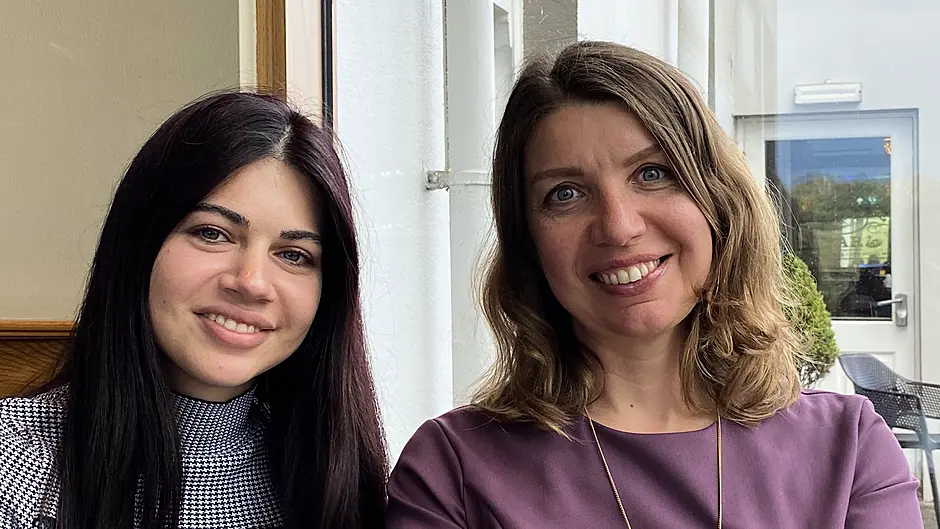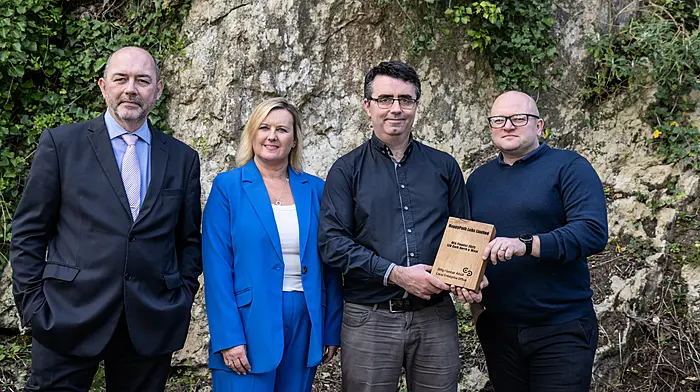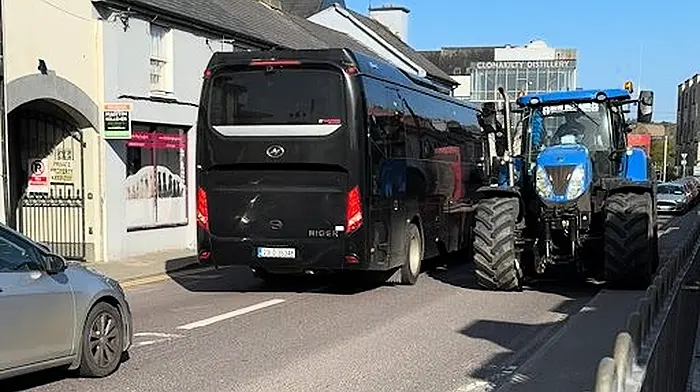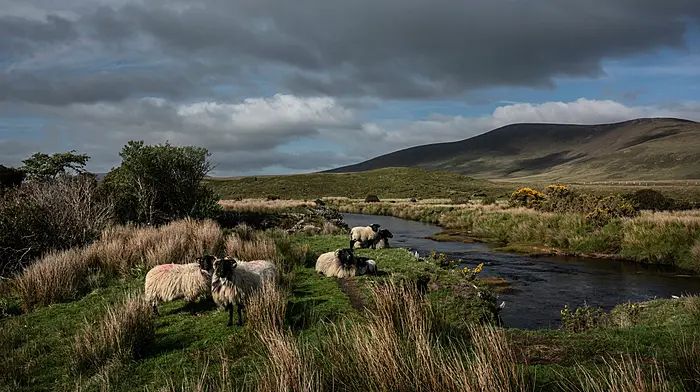TWO Ukrainian teachers in Skibbereen can corroborate the theory of ‘seven degrees of separation’.
The rather abstract theory is that any two people in the world are separated by, at most, seven connections.
Over coffee and cake at the West Cork Hotel, Mila Yashyna and Polina Dodoo teased out their connections to one another and to people living in Skibbereen.
Even before the war started in Ukraine, primary school teacher Mila (28) aspired to come to Skibbereen to visit Jennet O’Driscoll, her aunt Karina’s best friend.
Sadly, her aunt passed away through illness at a young age, but shortly after Russia invaded Ukraine, Mila’s own mother Svetlana came to Skibbereen.
Mila continued to teach for a while but found the air raids and assaults on Kyiv to be so relentless and terrifying that in April 2022 she moved to Ireland.
On arrival in Skibbereen, she set about registering her university degrees with the Teaching Council of Ireland and began her new career locally by helping out at Skibbereen Community School.
Given that her profession is as a primary school teacher, Mila was subsequently offered a role as an EAL – English as an additional language – teacher at St Patrick’s Boys National School in June 2022.
It’s her job to help 15 pupils for whom English is an additional language. These pupils are not just from Ukraine, they are from Lithuania, India, Malaysia, and Spain too.
The journey to West Cork taken by Mila’s husband Vlad is a very different story. As a former citizen of occupied Donbas, he made his way to the Crimean border where, after 11 hours of questioning, he fled the country and found his way back to her.
Mila had been living, studying, and working in Kyiv for years, and her husband ran a business there.
Although Mila was born in Turkmenistan, her grandfather was from Ukraine and she moved there with her family as a young child.
‘I always wanted to visit Ireland,’ said Mila, who spent six years in higher education to gain her various teaching degrees and qualifications.
Mila recalls that she was the only one in her family who believed war was inevitable. A lot of Ukrainians, her teaching colleagues included, did not believe the troops massing at their border would invade.
‘In that respect I was prepared. I had a “go” bag. And I was considered the crazy one in my family,’ she said.
She described the bombings and the whole process of taking the children out of school and into shelters as ‘terrifying’.
In contrast, Mila describes Skibbereen as ‘a perfect, tiny town. It is calm and very beautiful and we have everything we need to live here.’
Mila found the ‘good morning’ nod made by locals to be surprising at first, but now she loves it. She says it makes her feel as if she is living in a charming, black and white movie.
Polina (42), a secondary school teacher, who lives two minutes away, came to Skibbereen via Dublin, Wexford, and Drinagh, where her extended family of nine shared a house.
Having gone from Kyiv – which had a pre-war population of seven million – to an apartment in Skibbereen, Polina said the West Cork town is the centre of her universe.
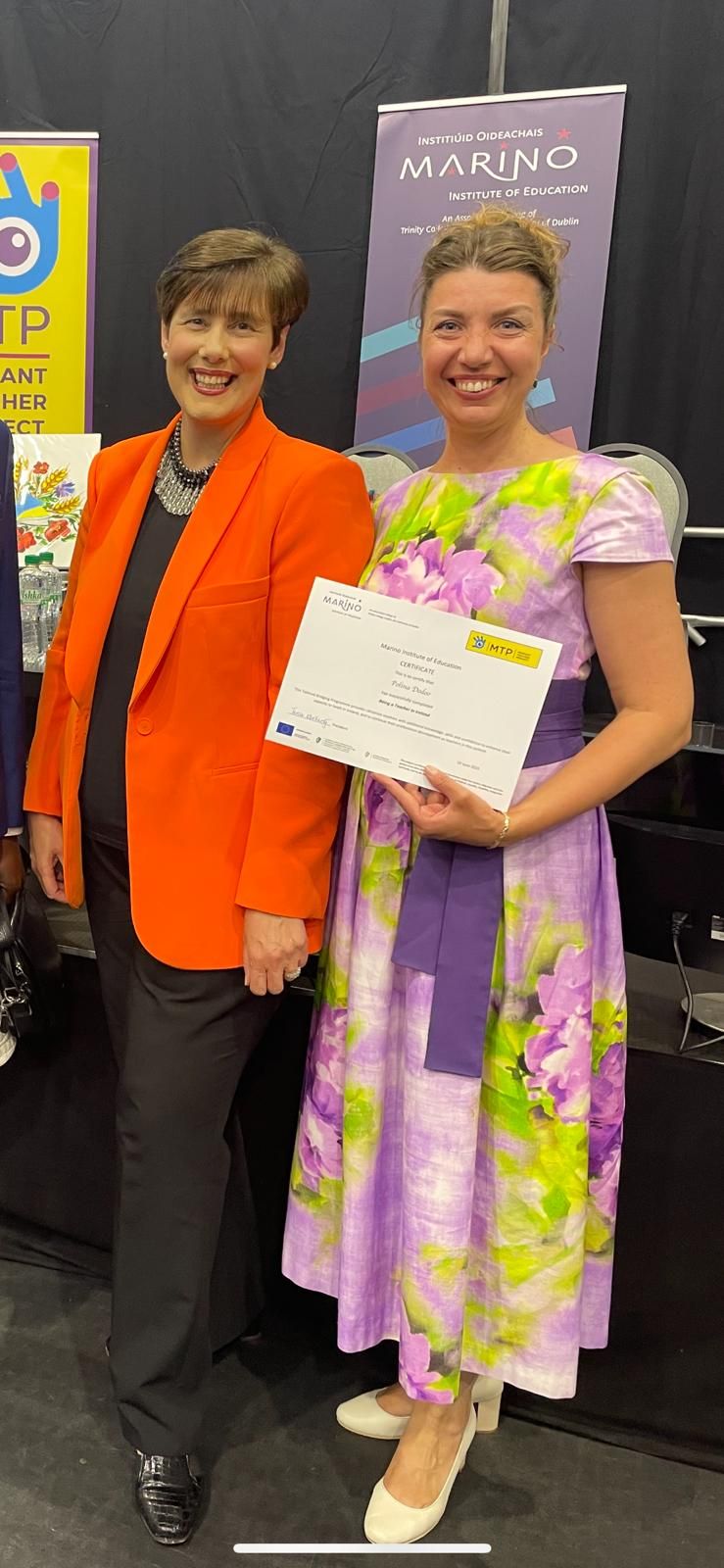 Polina Dodoo with the Education Minister Norma Foley after she registered her teaching qualifications in Ireland.
Polina Dodoo with the Education Minister Norma Foley after she registered her teaching qualifications in Ireland.
‘For me, Skibbereen is now the capital. It’s got Lidl, Aldi, SuperValu,’ she said with a laugh.
In their respective city lives, in Kyiv, neither would have met or socialised very much despite the fact that Polina’s brother’s wife, Victoria, is Mila’s husband’s sister.
Everything is different in Skibbereen and one of the things that strengthens their bond is that the two women are possibly the first EAL teachers in West Cork.
In fact, when Polina arrived in January of this year, Mila showed her the ropes. And it was connections that Mila made with the principal and staff at Skibbereen Community School that provided Polina with an introduction that ultimately led to a job.
Being able to speak to two Ukrainian women who have flawless English is interesting because they share their experiences so eloquently.
When the war started, Polina said there were no massive attacks and the children didn’t mind the interruptions to their classes. But all too soon it became serious with the relentless disruptions, explosions and deaths, making everything terrifying.
Such is the regularity of the air raid warnings that child psychologists are now needed to help the students process the stress of war.
‘The danger is you don’t know where the bombs will land,’ said Polina, who explained that every school is obliged to have a shelter, complete with comfortable chairs, desks and even projectors.
The shelters are specially built and regularly inspected. Each one must have two exits, be ventilated, have bathrooms, drinking water and electric lights.
Polina believes she was born to be a teacher. Her mother was a kindergarten teacher and, at the age of seven, Polina would make her two younger siblings sit and study all that she had learned in school that day.
‘Everybody’s decision to leave Ukraine is personal. No one can tell you when, why or what to do,’ she said.
‘I was living in those conditions for almost a year after the war started. It was not easy emotionally or psychologically, but you manage it because life goes on. People still shop and cook and get married and have children.’
This is the second time Polina has had to leave a war zone. She and her GP husband, George, left occupied Donbas in 2014.
‘That was very stressful for me because I left my house, and the city in which I was born. In Kyiv, we rented. We were considering buying but we are grateful now that we didn’t.’
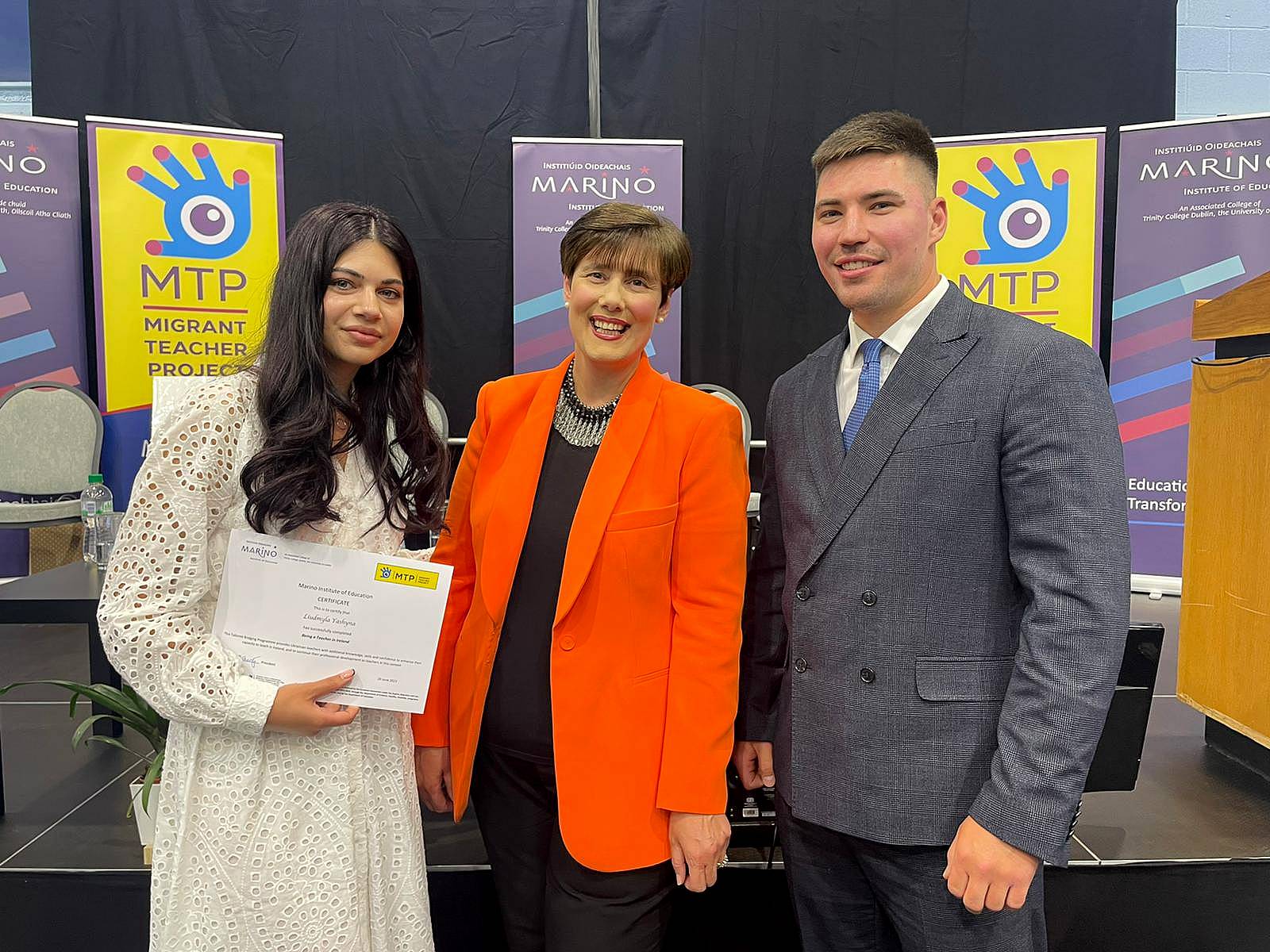 Mila with Education Minister Norma Foley and her husband Vlad Yashin.
Mila with Education Minister Norma Foley and her husband Vlad Yashin.
The majority of their possessions were left behind. They only took their clothes, and some essential items.
‘The first time it was more difficult but now my priorities are very different. It was easier leaving the second time. When things like war happen, you realise that such things, like possessions, cannot save your life.
‘You can lose everything you have in seconds. Things are things. You can get new things in a new place,’ she said.
In her new EAL role at Skibbereen Community School, Polina is helping 28 Ukrainian students by identifying gaps in their knowledge and helping them to integrate.
As for her own place in the scheme of things, she said: ‘I, too, am trying to integrate. I want to say, “Thank you” to everyone, including my colleagues, who are friendly, helpful, hospitable. They make it easier for me to adjust and adapt.’
Mila and Polina’s stories, and the connections they have made along the way, demonstrate the interdependency of people.
They show, too, how connections continue to be made through the kindness of strangers.

